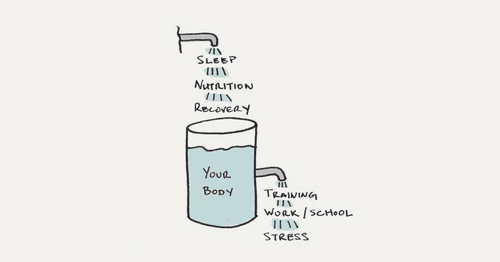The Science of Sleep: A Brief Guide on How to Sleep Better Every Night
Curated from: jamesclear.com
Ideas, facts & insights covering these topics:
3 ideas
·824 reads
1
Explore the World's Best Ideas
Join today and uncover 100+ curated journeys from 50+ topics. Unlock access to our mobile app with extensive features.
But what is sleep, exactly? Why is it so important and so restorative for our bodies and minds? How does it impact our lives when we are awake?
Sleep serves multiple purposes that are essential to your brain and body. Let's break down some of the most important ones.
The first purpose of sleep is restoration.Every day, your brain accumulates metabolic waste as it goes about its normal neural activities. While this is completely normal, too much accumulation of these waste products has been linked to neurological disorders such as Alzheimer's disease.
423
278 reads
The way this process occurs is fairly remarkable:
During sleep, brain cells actually shrink by 60 percent, allowing the brain's waste-removal system-called the glymphatic system-to essentially "take out the trash" more easily. The result? Your brain is restored during sleep, and you wake up refreshed and with a clear mind.
The second purpose of sleep is memory consolidation.Sleep is crucial for memory consolidation, which is the process that maintains and strengthens your long-term memories. Insufficient or fragmented sleep can hamper your ability to form both concrete memories (facts and figures) and emotional memories.
423
273 reads
Finally, sleep is paramount for metabolic health.Studieshave shown that when you sleep 5.5 hours per night instead of 8.5 hours per night, a lower proportion of the energy you burn comes from fat, while more comes from carbohydrate and protein. This can predispose you to fat gain and muscle loss. Additionally, insufficient sleep or abnormal sleep cycles can lead to insulin insensitivity and metabolic syndrome, increasing your risk of diabetes and heart disease.
423
273 reads
IDEAS CURATED BY
Allen Timothy's ideas are part of this journey:
Learn more about habits with this collection
The benefits of a ketogenic diet
The science behind the ketogenic diet
The potential risks of a ketogenic diet
Related collections
Similar ideas
12 ideas
A Brief Guide on How to Sleep Better Every Night
jamesclear.com
3 ideas
11 ideas
How Sleep At Night Is Really Important?
healthline.com
Read & Learn
20x Faster
without
deepstash
with
deepstash
with
deepstash
Personalized microlearning
—
100+ Learning Journeys
—
Access to 200,000+ ideas
—
Access to the mobile app
—
Unlimited idea saving
—
—
Unlimited history
—
—
Unlimited listening to ideas
—
—
Downloading & offline access
—
—
Supercharge your mind with one idea per day
Enter your email and spend 1 minute every day to learn something new.
I agree to receive email updates
